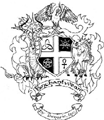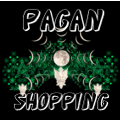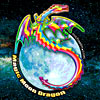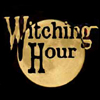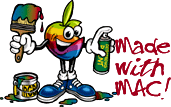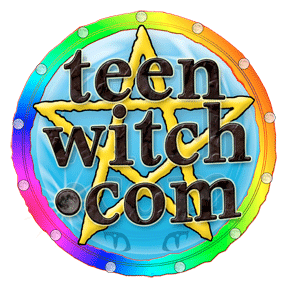Zinc is a nutritionally important mineral and a chemical element.
nutritional information:
“[Zinc] stimulates the activity of approximately 100 enzymes, which are substances that promote biochemical reactions in your body”, according to the U.S. National Institutes of Health. “Zinc supports a healthy immune system, is needed for wound healing, helps maintain your sense of taste and smell, and is needed for DNA synthesis. Zinc also supports normal growth and development during pregnancy, childhood, and adolescence.”
|
Table 1: Recommended Dietary Allowances for Zinc for
Infants over 7 months, Children, and Adults
| Age | Infants and Children | Males | Females | Pregnancy | Lactation |
|---|---|---|---|---|---|
| 7 months to 3 years | 3 mg | ||||
| 4 to 8 years | 5 mg | ||||
| 9 to 13 years | 8 mg | ||||
| 14 to 18 years | 11 mg | 9 mg | 13 mg | 14 mg | |
| 19+ | 11 mg | 8 mg | 11 mg | 12 mg | |
Results of two national surveys, the National Health and Nutrition Examination Survey (NHANES III 1988-91) and the Continuing Survey of Food Intakes of Individuals (1994 CSFII)indicated that most infants, children, and adults consume recommended amounts of zinc.
|
|||||
“Oysters contain more zinc per serving than any other food”, according to the U.S. National Institutes of Health.
“Phytates, which are found in whole grain breads, cereals, legumes, and other products, can decrease zinc absorption”, according to the U.S. National Institutes of Health.
“The U.S. Daily Value for zinc is 15 milligrams”, according to the U.S. National Institutes of Health.
zinc-rich foods
- almonds
- beans
- beef [not recommended]
- cashews
- cheese [not recommended]
- chicken [not recommended]
- dairy [not recommended]
- nuts
- oats
- oysters
- peas
- pecans
- poultry [not recommended]
- red meat [not recommended]
- walnut
- whole grains
- yogurt [not recommended]
- zucchini
deficiencies:
“Signs of zinc definiency include growth retardation, hair loss, diarrhea, delayed sexual maturation and impotence, eye and skin lesions, and loss of appetite”, according to the U.S. National Institutes of Health. “There is also evidence that weight loss, delayed healing of wounds, taste abnormalities, and mental lethargy can occur. Since many of these symptoms are general and are associated with other medical conditions, do not assume that they are due to zinc deficiency. It is important to consult with a medical doctor about medical symptoms so that appropriate case can be given.”
|
“Vegetarians may need as much as 50% more zinc than non-vegetarians because of the lower absorption of zinc from plant foods, so it is very important for vegetarians to include good sounces of zinc in their diet”, according to the U.S. National Institutes of Health.
“Maternal zinc deficiency can slow fetal growth.” according to the U.S. National Institutes of Health. “It is important for mothers who breast-feed to include good sources of since in their daily diet and for pregnant women to follow their doctor’s advice about taking vitamin and mineral supplements.”
“Low zinc status has been observed in 30% to 50% of alcoholics”, according to the U.S. National Institutes of Health. “Alcohol decreases the absorption of zinc and increases loss of zinc in urine. In addition, many alcoholics do not eat an acceptable variety or amount of food, so their dietary intake of zinc may be inadequate.”
“Diarrhea results in a loss of zinc”, according to the U.S. National Institutes of Health.
“The immune system is adversely affected by even moderate degrees of zinc deficiency”, according to the U.S. National Institutes of Health. “Severe deficiency depresses immune function. Zinc is required for the development and activation of T-lymphocytes, a kind of white blood cell that helps fight infection. When zinc supplements are given to individuals with low zinc levels, the numbers of T-cell lymphocytes circulating in the blood increase and the ability of lymphcytes to fight infection improves. Studies show that poor, malnourished children in India, Africa, South America, and Southeast Asia experience shorter courses of infectious diarrhea after taking zinc supplements. Amounts of zinc provided in these studies ranged from 4 mg a day to up to 40 mg per day and were provided in a variety of forms (zinc acetate, zinc gluconate, or zinc sulfate). Zinc supplements are often given to help heal skin ulcers or bed sores, but they do not increase rates of wound healing when zinc levels are normal.”
“Foods with iron does not significantly affect zinc absorption”, according to the U.S. National Institutes of Health. “However, large amounts of iron in supplements (greater than 25 mg) may decrease zinc absorption, as can iron in solutions. Taking iron supplements between meals will help decrease its effect on zinc absorption.”
excesses:
“Zinc toxicity has been seen in both acute and chronic forms”, according to the U.S. National Institutes of Health. “Intakes of 150 to 450 mg of zinc per day have been associated with low copper status, altered iron function, reduced immune function, and reduced levels of high-density lipoproteins (the good cholesterol). One case report cited severe nausea and vomiting within 30 minutes after the erson ingested four grams of zinc gluconate (570 mg elemental zinc).”
Table 2: Upper Levels for Zinc for Infants, Children, and Adults
| Age | Infants and Children | Males and Females | Pregnancy and Lactation |
|---|---|---|---|
| 0 to 6 months | 4 mg | ||
| 7 to 12 months | 5 mg | ||
| 1 to 3 years | 7 mg | ||
| 4 to 8 years | 12 mg | ||
| 9 to 13 years | 23 mg | ||
| 14 to 18 years | 34 mg | 34 mg | |
| Ages 19+ | 40 mg | 40 mg | |
| —the U.S. National Institutes of Health | |||
scientific information:
Zinc is a moderately-reactive bluish-white metal.
Name: zinc
Symbol: Zn
Atomic Number: 30
Periodic Table: Group (or family) 12 (old European IUPAC system group IIB; old American CAS system group IIB); Period 4; d-block
Atomic mass: 65.409(4) g/mol
See also: minerals and nutrients.



